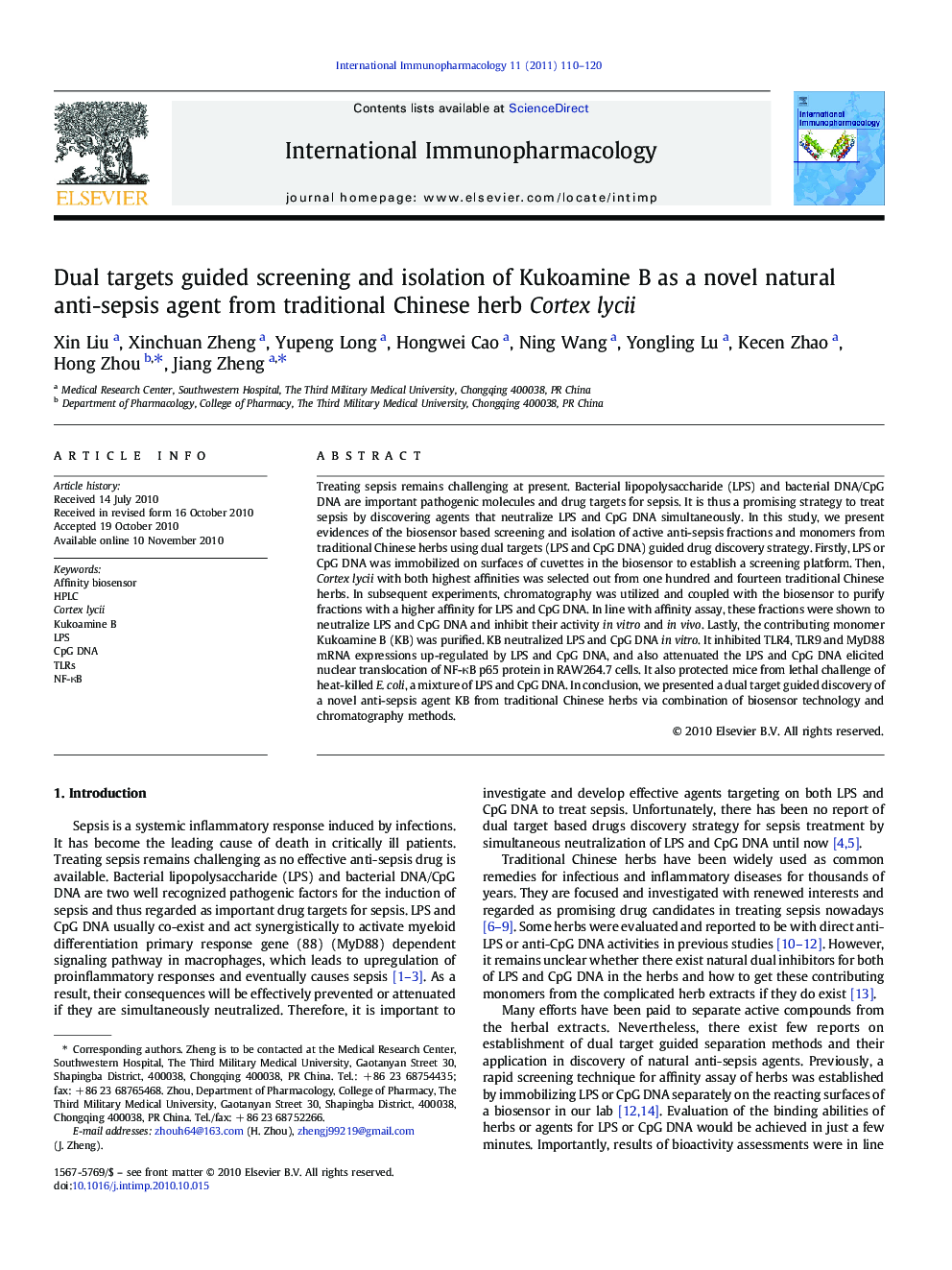| Article ID | Journal | Published Year | Pages | File Type |
|---|---|---|---|---|
| 2541182 | International Immunopharmacology | 2011 | 11 Pages |
Treating sepsis remains challenging at present. Bacterial lipopolysaccharide (LPS) and bacterial DNA/CpG DNA are important pathogenic molecules and drug targets for sepsis. It is thus a promising strategy to treat sepsis by discovering agents that neutralize LPS and CpG DNA simultaneously. In this study, we present evidences of the biosensor based screening and isolation of active anti-sepsis fractions and monomers from traditional Chinese herbs using dual targets (LPS and CpG DNA) guided drug discovery strategy. Firstly, LPS or CpG DNA was immobilized on surfaces of cuvettes in the biosensor to establish a screening platform. Then, Cortex lycii with both highest affinities was selected out from one hundred and fourteen traditional Chinese herbs. In subsequent experiments, chromatography was utilized and coupled with the biosensor to purify fractions with a higher affinity for LPS and CpG DNA. In line with affinity assay, these fractions were shown to neutralize LPS and CpG DNA and inhibit their activity in vitro and in vivo. Lastly, the contributing monomer Kukoamine B (KB) was purified. KB neutralized LPS and CpG DNA in vitro. It inhibited TLR4, TLR9 and MyD88 mRNA expressions up-regulated by LPS and CpG DNA, and also attenuated the LPS and CpG DNA elicited nuclear translocation of NF-κB p65 protein in RAW264.7 cells. It also protected mice from lethal challenge of heat-killed E. coli, a mixture of LPS and CpG DNA. In conclusion, we presented a dual target guided discovery of a novel anti-sepsis agent KB from traditional Chinese herbs via combination of biosensor technology and chromatography methods.
